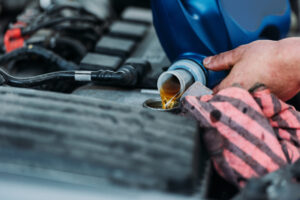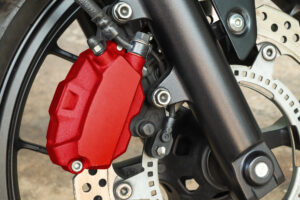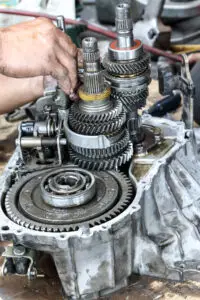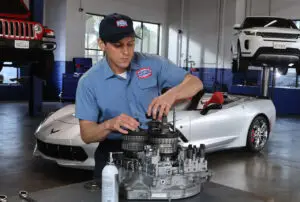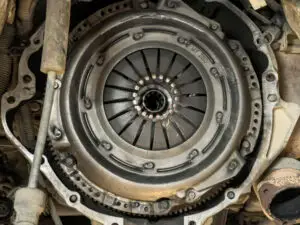At the crux of your vehicle’s power, performance, and handling sits the transmission. This essential system is responsible for smooth gear shifts and the transfer of power out to the drive wheels so that you can easily accelerate at the press of a pedal. As important as it is, it’s also a complex system that’s notoriously tricky to repair—but keeping up with proper maintenance will help extend the life of your transmission and prevent many of the most serious repairs.
Proper Maintenance Includes Professional Services & Healthy Driving Habits
Wear and tear on parts in your transmission is closely related to your typical driving conditions. Do you often drive on highways or city streets? Are you usually stuck in traffic or often have open road ahead of you? More strenuous driving conditions can shorten the lifespan of your transmission over time—but the right maintenance and habits can help extend it.
Replace Your Transmission Fluid Every Few Years or 50,000 Miles
Transmission fluid is the lifeblood of the system. Without the right level and good condition of fluid in the system, friction increases, which speeds up wear and makes overheating more likely, shortening the lifespan of your transmission. Like many of the fluids in your vehicle, it should be replaced at regular intervals. However, those intervals vary depending on your vehicle and driving habits, so always consult your owner’s manual and a trusted mechanic.
Check Your Transmission Fluid Regularly
Most newer vehicles have a dipstick that can be used to check your transmission fluid. Follow the same process you would with engine oil: remove the dipstick, wipe clean with a towel, re-insert, and check the level and condition when you pull it back out. If the level is too low or the fluid seems dirty and thickened, it’s time to schedule a service with your mechanic. By checking your transmission fluid regularly, you can catch issues early—and prevent many of the most common problems.
Schedule Transmission Inspections Annually
Even with adequate fluid, problems with your transmission can arise—but catching them early is the key to keeping the system healthier for longer. At least once a year, a professional mechanic should inspect your car’s transmission for signs of trouble. Whether there’s a leak, stuck solenoid, or other minor repair, these inspections allow your mechanic to find and fix them before they escalate. You’ll enjoy better overall performance each time you drive and help avoid damage that could require a full transmission replacement.
Service the Cooling System Every Few Years
Outside of the transmission itself, the cooling system is key to its health and longevity. Not only does coolant keep the engine operating at a healthy temperature as it cycles through the system, but it also impacts the transmission’s internal temperature. One of the quickest ways for catastrophic damage to be done to your transmission is through overheating. Increased friction and high temperatures can quickly and easily cause extensive damage to internal components. Have your cooling system inspected and serviced at least every couple of years and you’ll help prevent issues with your transmission, engine, and more.
Healthy Driving Habits to Protect Your Transmission
Avoid Frequently Towing or Hauling Heavy Loads
Each vehicle comes with a recommended weight range for towing and hauling. Check your owner’s manual and stick to the range given by your car’s manufacturer. The more weight your car carries, the more strain is put on the transmission to power your vehicle. By going above the recommended range, you risk causing serious damage to the transmission, engine, suspension, and more.
Ease Off the Gas Each Time You Drive
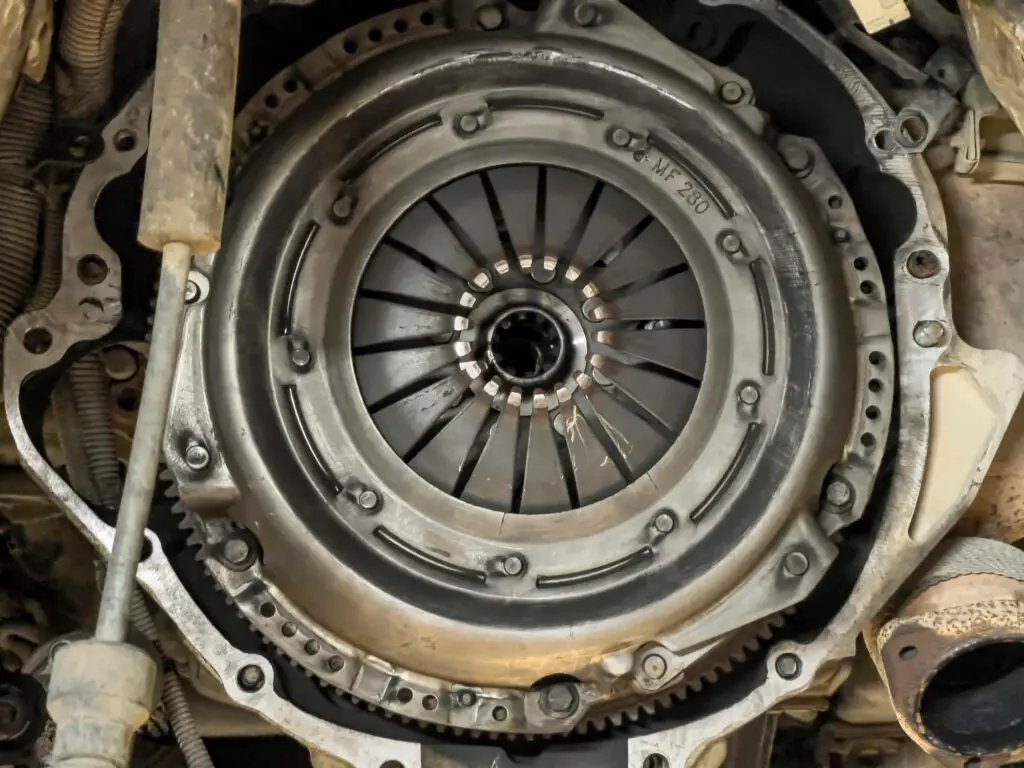
Do you tend to have a lead foot? Another way to speed up wear and potentially damage your transmission is frequent harsh acceleration. The more your engine revs and quicker the transmission shifts through gears, the more strain is put on both systems. Over time, this can shorten the life of key systems in your vehicle and cause more repairs.
Always Use the Parking Brake
Especially when parking on an incline, be sure to engage the parking brake before leaving your car. Without this brake engaged, it’s up to the transmission to keep your car stationary, which puts more strain on the system. When done frequently, you speed up wear and are at risk of causing serious damage to parts of the transmission, especially gear components.
Keep Up with Routine Transmission Maintenance at AAMCO
Proper maintenance means more than just professional services—but for help keeping your transmission operating at its best for years to come, there’s no one you can trust more than the expert mechanics at your local AAMCO. We understand the impacts of Chicagoland driving and climate on your vehicle and can help keep essential systems running smoothly. Schedule your appointment with us today!
For more tips on vehicle care, check out our post on Essential Engine Maintenance Tips.

